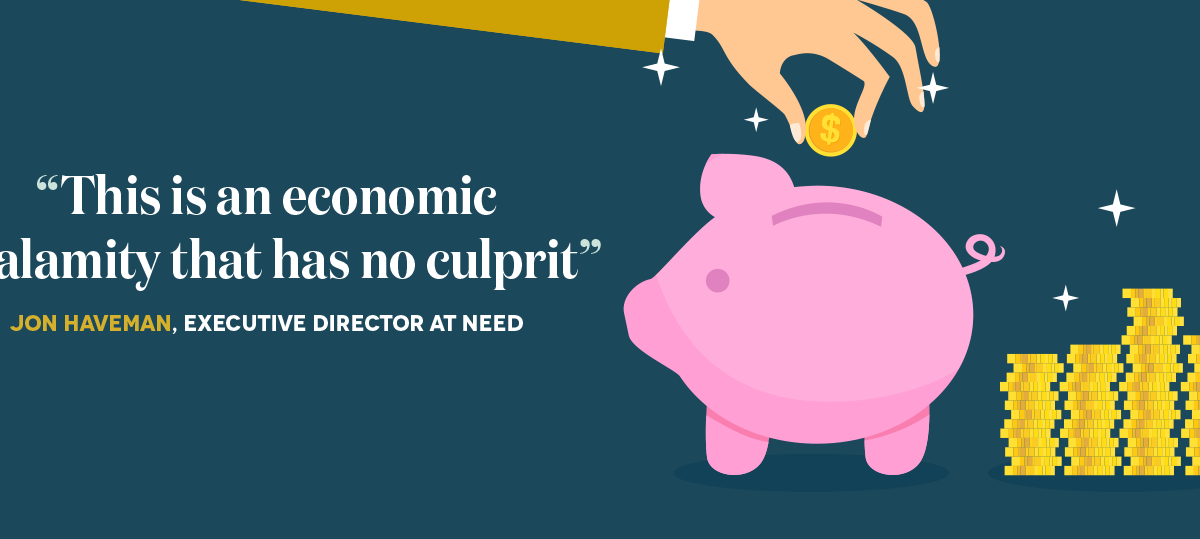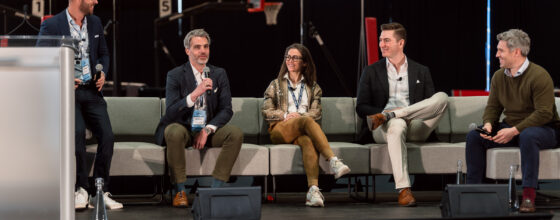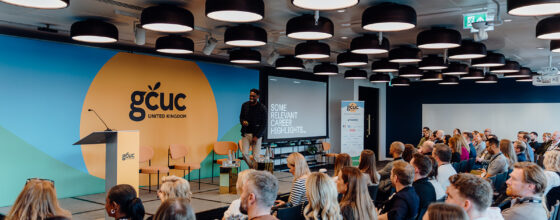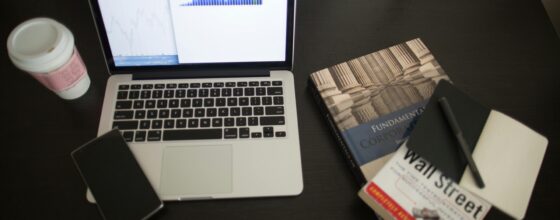GCUC Mastermind: Finance session takeaways

Knowledge is Power was the theme of our finance Mastermind. We had a great session with an amazing economist (Jon Haveman) who broke down the COVID economy. Next we had an amazing panel that delved into financial reporting and the question – should you buy the building.
Here are some juicy highlights from GCUC Mastermind – Finance:
This is an economic calamity that has no culprit. –Jon Haveman, Executive Director at NEED
Conceptually I put what is going on in the same bin as natural disasters, but this is different in a couple of aspects. This is global so you can’t rely on the assistance of others, everyone is in the same soup. The duration of this is unpredictable. The economic toll is enormous and potentially durable. The economy will be different on the other side. –Jon Haveman, Executive Director at NEED
At the end of every single month run your P&L and a variance analysis. Look for large variances within the balances of your GL accounts. Be ready, willing, and able to explain the reason for the variances. This should be done to get yourself prepared to answer those questions but also an opportunity to find errors/miscodings and to make corrections before anyone else is able to look at your financials under a microscope where it could have repercussions for you. –Giuseppe Salamone, Co-Founder at VaroTeam
Purchasing a building is challenging and fun/not really fun experience. –Jenny Poon, Co-Founder & CEO at CO+HOOTS
The pandemic is impacting women more than men. Both because of the jobs they tend to have and because of their home obligation. That’s why we’re getting more women dropping out of the labor force than men. Also, significant differences in white and minority groups, as well. Minority groups tend to be concentrated in lower wage sectors and those sectors are not doing very well. –Jon Haveman, Executive Director at NEED
Look at consumer spending and what it’s doing because that is a reflection on both the supply and demand side. Consumer spending goes down when the supply side shorts them. Consumer spending goes down when consumers feel uncomfortable. –Jon Haveman, Executive Director at NEED
Going through what we’re currently going through with COVID proves that you should have your financials ready at any given moment. Make sure that you’re reconciling books and financials on a monthly basis. –Giuseppe Salamone, Co-Founder at VaroTeam
Consumer spending is down 4.1% overall relative to January. It is down 29% in restaurants and hotels, down almost half in transportation. The economy bounced back but it does not look like we are going to recover that last 4% anytime soon. –Jon Haveman, Executive Director at NEED
Your P&L is telling a story and it’s better to own the narrative up front. Control the narrative and be able to fluently speak of the lumps in your data from the beginning. Investors engage better with people who are proactive in the narrative instead of being reactive. So if you have any oddities in your data be transparent. –Nick Tuszynski, Head of Market Planning at IWG
During the global economic crisis, we thought it was horrendous job loss at losing 700,000 jobs a month which pales in comparison to April 2020 where we lost 20.8 million jobs in the United States. We are still down 10 million plus jobs. –Jon Haveman, Executive Director at NEED
Economic growth projections are all over the place from 5% – 9% because economists use two things when they forecast: history and personal intuition. We have no history because we have never been in a situation like this before, so everyone is relying on intuition. –Jon Haveman, Executive Director at NEED
The first financial report that an investor is going to look at is a profit loss statement or an income statement. They want to look at historical information so trailing 12 or 24 months P&L ‘s. Also discuss with your bookkeeper if your accounting books are based on cash or accrual basis as you’re walking someone through your financials. Lastly, make sure you’re able to discuss your different revenue streams and historical occupancy. Occupancy reports, revenue streams and P&Ls. –Nick Tuszynski, Head of Market Planning at IWG
Small businesses are struggling. 24% of all small businesses are now closed. The longer this goes on the more of those businesses that are closed will be closed permanently. It’s really not that simple. Re-opening is extremely difficult. This is all a reflection of the pandemic but also our policy response being inadequate. –Jon Haveman, Executive Director at NEED
You get forecasting for coworking and commercial that is all over the place and that’s because no one really knows. It depends a lot on policy and what the virus is going to do. Pay no attention to any averages you hear about coworking because the average applies to exactly nobody. –Jon Haveman, Executive Director at NEED
For coworking it is suburban vs urban. Suburbs are doing better since no one wants to go to the urban areas. People are telecommuting from their homes in the suburbs, they’re choosing places with stairs and not elevators because they don’t want to be in confined spaces. In the long term, we are going to see more demand overall. –Jon Haveman, Executive Director at NEED
Every business is different so looking at your technology stack is something you should do. If you don’t have a good understanding of what your needs are, in the finance realm, then you might not be able to understand what it is that your technology stack should look like. Speak to a professional and speak to other operators to see what worked for them. –Giuseppe Salamone, Co-Founder at VaroTeam
Have an automated forecast of deals that are locked in. That way you can kind of see your forward occupancy. If you have a big client leaving in a couple months you’ll know that you need to market that space. Having a backward look at your occupancy and a forward look of your occupancy is very very helpful. –Nick Tuszynski, Head of Market Planning at IWG
We can’t go back to normal until things are really good. We’ve never done the social distancing thing well enough to get to really good. Until we can figure out a way to do that we might continue to just go back and forth. –Jon Haveman, Executive Director at NEED
If you’re looking to buy a building, they’re going to look at your personal tax returns so you need to know any debts you have. Outstanding debts in particular is something that they look at for a first-time purchase of this size. Be able to tell the story about your finances because they will ask about jumps in particular months and you will need to describe in detail what happened. –Jenny Poon, Co-Founder & CEO at CO+HOOTS
Owning versus going asset light, there’s not a right answer there’s not one that’s better than the other. It all depends on what’s best for you. Owning your own building you control the asset, you control the beginning to end user experience. You wouldn’t have to fight with the landlord with things that are going on in your building. –Nick Tuszynski, Head of Market Planning at IWG
It was important for us to have a say in our neighborhood. We are very rooted in our community and as a property owner you get to vote on specific things that happen in your neighborhood. It was cheaper for us to pay a mortgage than to pay a lease and we’re going to be in this neighborhood for 5+ years. –Jenny Poon, Co-Founder & CEO at CO+HOOTS
If you missed it, the replay is available on GCUC membership. GCUC Mastermind is a wrap but don’t miss GCUC Online – Cash Flow & Resource Allocation with Jerome Chang of Blankspaces. If you do not already have your ticket, you can snag one here.
As always, we want to give a big shout out to our partner who helped make GCUC Mastermind happen. GCUC Mastermind was brought to you in partnership with essensys.
*Some quotes have been edited for length and clarity.







